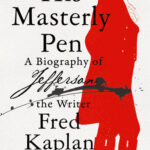I believe this must qualify as one of the biggest books ever published. A story in today’s New York Times points out that the publishing accomplishment of the year, perhaps of the decade, is about to take place. Brian Harrison, working in Oxford, has completed editing work on the Oxford Dictionary of Biography–all 60 million words of it.
“This is a work which makes superlatives superfluous,” writes Geoffrey Wheatcroft in the New York Times. “Running 11 feet along the shelf and weighing in at a healthy defensive end’s 280 pounds, the D.N.B.’s 60 volumes contain 60,000 pages and some 60 million words. More than 10,000 contributors have written a total of 54,922 essays on the worthies (as well as the worthless) who make up the fabric of British history.
“It has been more than 12 years in the making. A special batch of indestructible acid-free paper was ordered from a Swiss paper mill. The Butler & Tanner printing works in Somerset were fully occupied for months printing, folding and binding. Each set requires enough sewing thread to go from one end of a football field to the other and back.”
Some history on the project from Wheatcroft’s article. “The O.E.D. had a sibling, begotten by Sir Leslie Stephen, don, critic, journalist, mountaineer, rowing coach and father of four, one of them Virginia Woolf. With that slightly demonic energy of his age – it was an empty week if he hadn’t written three essays of at least 5,000 words each – he began the D.N.B. He worked with the publisher George Smith, and Sir Sidney Lee (born Solomon Lazarus), a bachelor scholar, ardent Shakespearean and, in Mr. Harrison’s view, “the real hero” of the first D.N.B. Between them they produced their vast work between 1885 and 1900. It was updated throughout the 20th century in supplementary volumes, while it passed into the hands of the Oxford University Press.”
In 1992, according to the article, the editors wanted to create an updated edition, much like the work done on the Oxford English Dictionary, another work of extrodinary depth and breadth. Initially, some $5 million was devoted toward the project as seed money. “A contributor who toils away over one of these essays, after months of reading, writing, editing and fact-checking, may finally receive a gratifying word of praise from Brian Harrison – and a check for just about enough to buy lunch in one of Oxford’s more pretentious gastro-pubs,” writes Wheatcroft. “The project would have been impossible if commercial rates were paid to contributors, and no one writes for the D.N.B. for the money.” However, little did they know that when the project was said and done, the total bill would be more than $40 million, according to the Times article.
The book, or books rather, will actually be produced for sale. Designed for libraries and univversities, the 60 volumes of the new Oxford DNB, which are scheduled to be released today, will retail for $11,000 until the end of November, and then $13,000 after that. A completly cross-referenced electronic version available on CD-ROM is available for only $295.
It is doubtful the likes of this project will be seen again, Wheatcroft writes. “For Oxford University Press, the difficulty is that most libraries, let alone individual buyers, are going to prefer the electronic versions. As for the future, it’s more than likely that no such work on this scale will ever again be produced in book form. To stand before those 60 volumes may be like waving goodbye to the last Atlantic liner, on a glorious last voyage.”





